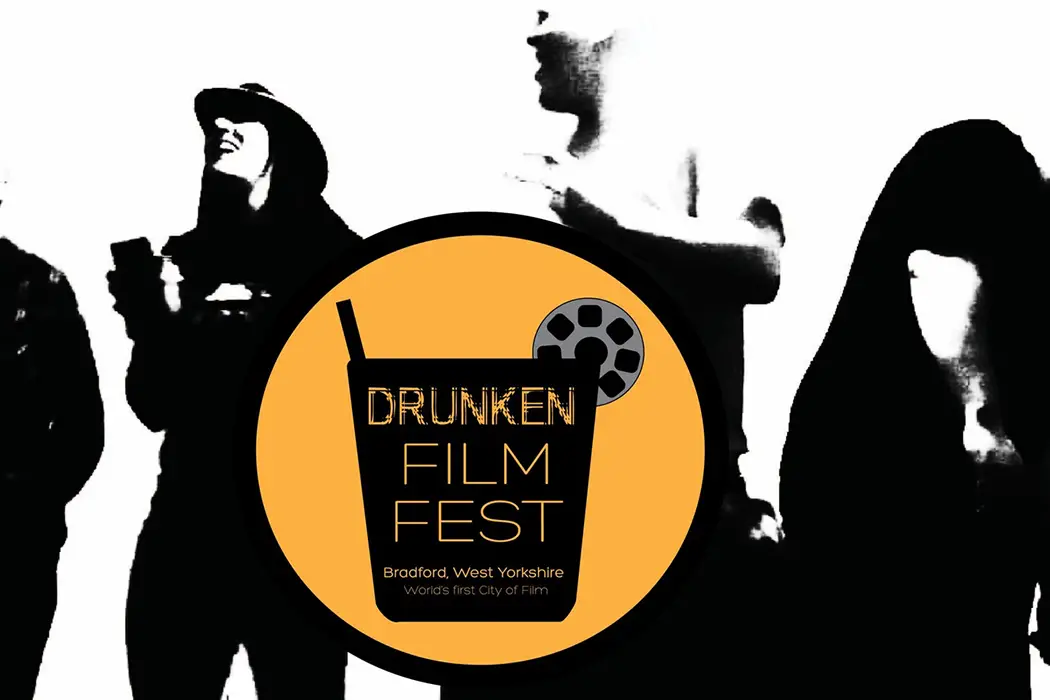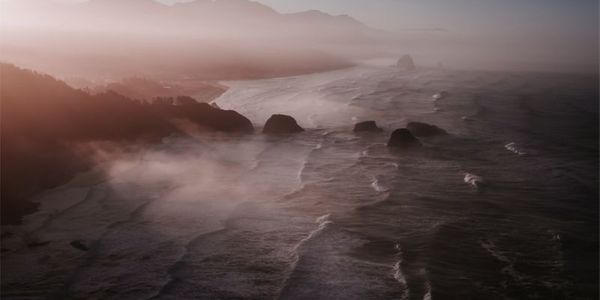Drunken Film Fest Reviews: HEIMAT, ETHOS & COMPRESSION

I'm a creative writing graduate who likes horror and things…
Drunken Film Fest took place in Bradford, UK July 15th through 21st this year. The festival isn’t called that because the beer flows like water – it’s the films that are the main event, personally picked by festival organisers Jax Griffin and Arlin Golden, who met through writing for Film Inquiry.
The films reviewed below won awards at the festival for best short film, best documentary, best avant-garde and best overall. Find out more about the Drunken Film Fest on their website.
Ethos (Winner Best Overall, Best Short Film)

Ethos is a film which falls into a genre that isn’t widely viewed, or even very widely created. The most notable films in the genre are the three from the Qatsi trilogy (Koyaanisqatsi, Powaqqatsi and Naqoyqatsi,) and also Samsara and Bakara, which are all pretty great films. Each of these films is pretty much a study of an area, or a particular time period, usually set to music, and that’s where Ethos differs from the films I’ve just mentioned.
The film opens with a quote from the poem, ‘True Love’ by Robert Penn Warren, and then veers off into a rendition of Allen Ginsberg’s ‘Song,’ which provide a weight to the film which it wouldn’t have otherwise had. But the ‘love’ they’re talking about isn’t a love for a person, like in the aforementioned poems, but a love for the natural world, and that’s reflected in what’s on the screen.
Ethos is roughly three minutes long, and features sweeping shots of the Grand Canyon, oceans and snowy tundras. But there is a certain amount of verve in the filmmaking. The footage is intrinsically linked with the soundtrack, which is a mix of Neo-Classical music and drums which are engineered to sound like a heartbeat. As that happens, the footage glitches, repeats or moves backwards and forwards, and it gives the film a propulsive quality which it wouldn’t have had otherwise.
Ethos may not boast the style or inventiveness or the Qatsi trilogy, but Jay Worsley is working in a genre whose fans just can’t catch a break. If you’re a fan of travel, different cultures or just nature in general, you’ll find something to enjoy in the film. It may be short, but it’s an emotional film, and it’s a cinematic style that’s hard to get right. But they did, and that’s nothing to be sniffed at.
Heimat (Winner Best Documentary)

Heimat is a documentary film which is based around the European refugee crisis. It starts off with an overhead shot of a series of three houses, and then the camera holds on an image of a man brushing his yard, which features a tiled rendition of a lion which features on the Flemish flag. Flanders, of course, is a part of Belgium in which they speak Dutch.
Right off the bat, the audience knows that Heimat is a documentary about nationality, and the documentary is one that’s very difficult to watch. It’s essentially a series of conversations between different pairs of people, who offer their opinions on the refugee crisis, interspersed with news broadcasts describing controversial laws implemented by governments across Europe.
At first, I wasn’t really sure what to think of the documentary. On its surface, it’s a documentary which offers a collection of opinions which I don’t think are acceptable. Technically proficient? Sure, but I didn’t see much worth in it beyond some interesting cinematography.
But on second viewing, I wasn’t sure the point was to reinforce those views, but to present them to its audience without any political leanings, and allow its audience to take it however they will.
Despite that, there was something about it that just didn’t connect with me. When I’m watching a documentary, I always want it to give me some kind of takeaway, or something to think about which I hadn’t considered previously. But after watching Heimat a few times, all I could think was, ‘is that all?’
My point is this: I already know the facts, and I already have my opinion on the refugee crisis, and although the documentary may be technically proficient, I don’t think it offers a new perspective, or has much which is interesting say on the topic. It’s not completely without merit. Heimat never feels sensational or like it’s misrepresenting the issue in any way, it’s just not quite as in-depth as I’d have liked.
Compression (Winner Best Avant-Garde)

Compression is an avant-garde film that can be described in a pretty fundamental way. Three multi-coloured strips are on the screen, and over the course of the short film they shift and melt into each-other with a retro-style soundtrack that sounds as if it is was made solely with a Theremin and a synth. The film does change as it goes on, but I won’t say exactly how. It would ruin the enjoyment of it.
The most important thing to say about avant-garde film is that you do have to judge them on a different criteria to films which are made according to traditional cinematic rules. A film like Compression has no plot, not does it have any discernible characters or non-abstract objects. But the film isn’t really about that.
The experience of viewing compression is an intense, fairly suffocating one, and I think that’s what creator Oliver Smith intended. Writing a review of it almost feels like a waste of time, but it’s something that can’t be explained. One thing is for certain: it’s a unique experience, and one that you won’t find in mainstream cinema.
The next renditions of Drunken Film Fest are taking place this year from 7th-12th October in Oakland, California, and in August 2019 in Bradford, England (dates to be confirmed.)
What are your thoughts on any of the films mentioned?
Does content like this matter to you?
Become a Member and support film journalism. Unlock access to all of Film Inquiry`s great articles. Join a community of like-minded readers who are passionate about cinema - get access to our private members Network, give back to independent filmmakers, and more.
I'm a creative writing graduate who likes horror and things which are politically and socially conscious. When I want to escape reality, I watch Edgar Wright films. I also read a lot.













